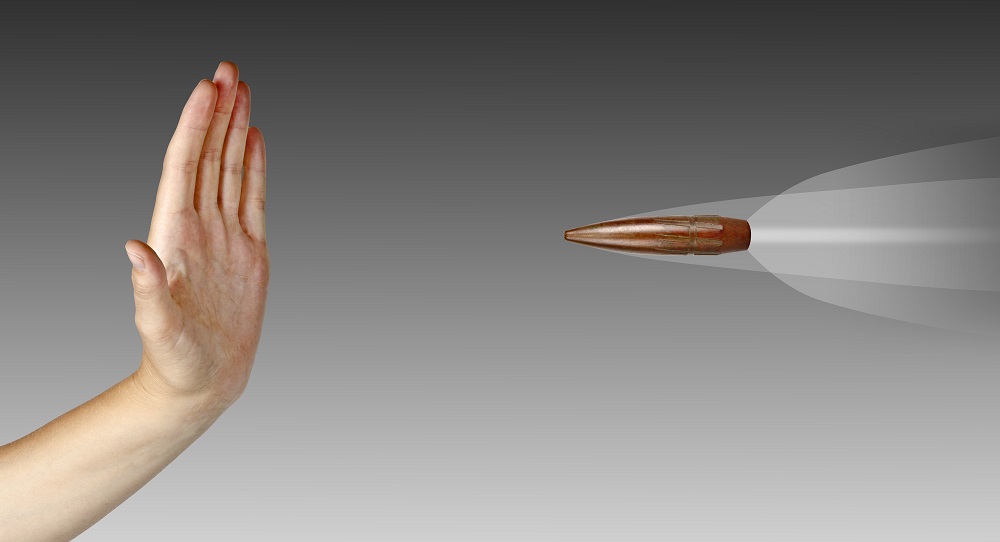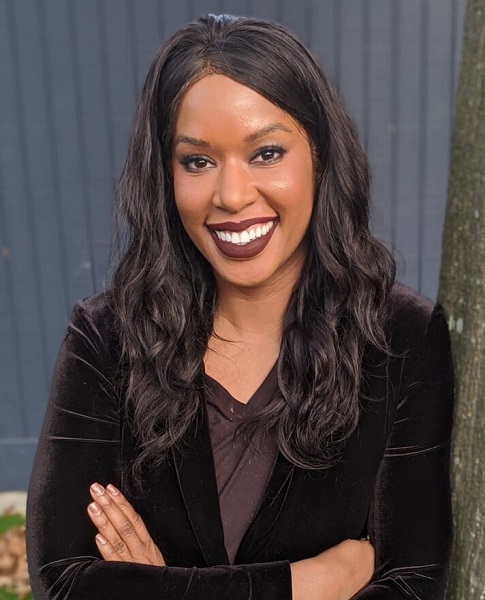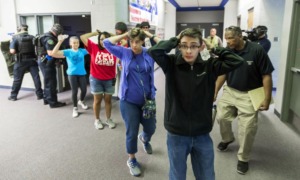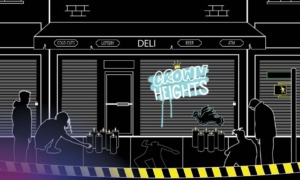 ARKA38/SHUTTERSTOCK
ARKA38/SHUTTERSTOCK
Three months ago, the entire nation was rocked by the killing of George Floyd by Minneapolis police. In the weeks since his murder, a movement has taken shape to demand not only an end to policing, but a refocusing on community-led public safety that saves lives by stopping the use of officers with a firearm in our neighborhoods.
This national reckoning is based on decades of righteous and rightful anger from Black organizers and community members on the front lines of combating violence. Communities across the country have taken steps to scale back ever-growing police budgets, to strip departments of military-grade equipment that terrorize our streets and to invest in public safety and mental health without putting communities at further risk.
But while our nation finally tackles systemic racism, economic inequality and discriminatory policing, we’re also experiencing a surge in gun violence — disproportionately impacting communities of color. Shootings in New York are up 53% from the same time last year; in Chicago they’re up 46%, in Atlanta, 23%. This summer of violence has taken the lives of dozens of children across the country, including Amaria Jones, a 13-year-old who was killed in her living room by a stray bullet while showing her mom a TikTok video.
The coronavirus pandemic and the countless deaths of Black people have exposed and exacerbated the systemic racial inequities and lack of access to opportunities for Black, Brown and Indigenous people — the same people who bear the brunt of the gun violence pandemic. But while these issues have persisted over the generations, it’s time for policymakers to use a new playbook to tackle them.
Local communities and organizers on the front lines of the gun violence and police violence epidemics have long advocated for a more courageous and righteous strategy — one that doesn’t resort to policing, criminalizing and incarcerating people of color. It’s time that lawmakers heed the advice of those closest to the pain; it’s time for us to invest in our communities and the proven solutions to violence, rather than the antiquated strategies that put more police and more guns on our streets.
Listen to members of community
That’s why last week, the Community Justice Action Fund, as well as collaborators from organizations such as the Austin Task Force on Gun Violence and the National Domestic Violence Hotline, released A Policymaker’s Playbook: To Reduce Gun Violence Without Policing Communities, the first of six “playbooks” that will provide a roadmap for elected officials at every level to address these issues.

Community Justice Action Fund
Amber Goodwin
We’re joining with activists, policymakers and allies from across the country to demand a new approach to safety and prosperity in our communities. Whether it’s Breonna Taylor, Rayshard Brooks, Merci Mack or countless other Black Americans who have lost their lives at the hands of police, we know that increased police presence and bloated police budgets don’t solve these problems, in fact they make them worse.
Community problems need community solutions. That’s why we’re calling for lawmakers to implement a gun violence reduction strategy that starts and ends with community members. Policymakers should assess the risk in their communities, hire trained community outreach workers, support violence prevention and intervention programs, and invest in programs that boost opportunity and economic growth for people on the front lines.
These are tried and tested solutions to reduce violence that should be the foundation for every community. In New York City for example, a Crisis Management System that incorporated these evidence-based strategies resulted in a 40% reduction in shootings across program areas. Rather than relying on the failed “tough on crime” strategies of the past, these programs promote healing, prevent trauma and lay the groundwork for economic growth.
The crises of gun violence and police violence have impacted communities across the country for decades, but the issues are not unrelated. Black men in America make up 6% of the population, but more than half of all gun homicides each year. At the same time, Black men are more than twice as likely as white men to be killed by police.
While the nation comes to grips with the racist enforcement of policing and the checkered history of systemic racial inequality, it would be unthinkable for communities to continue to make the same mistakes that got us where we are today. Gun violence, including the daily violence that impacts communities of color, is not an intractable problem. Organizers and community leaders closest to these issues have pushed for new solutions for years, only to be silenced.
It’s time for our elected officials to step up, show some courage and heed the advice of those who know the old solutions won’t cut it.
Amber Goodwin is the founding director of the Community Justice Action Fund (CJAF) and the Community Justice Reform Coalition. CJAF is the nation’s leading gun violence prevention organization working on policy, education, leadership development, and building resources centered on communities of color.






























